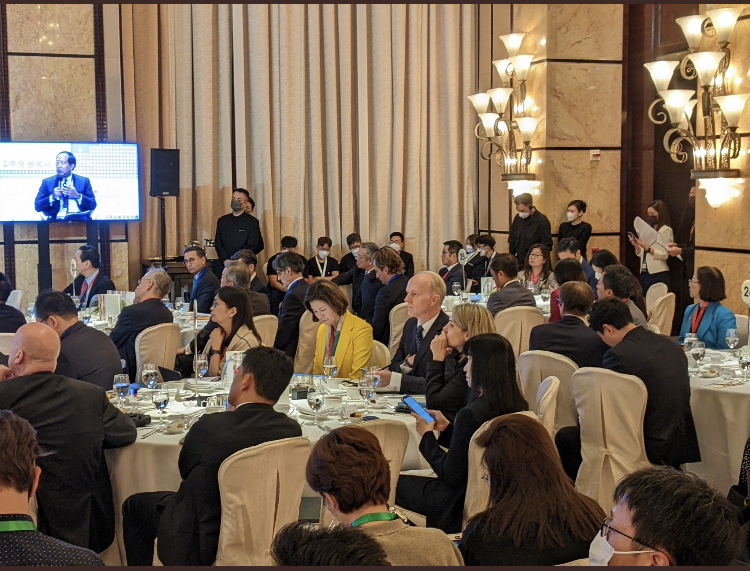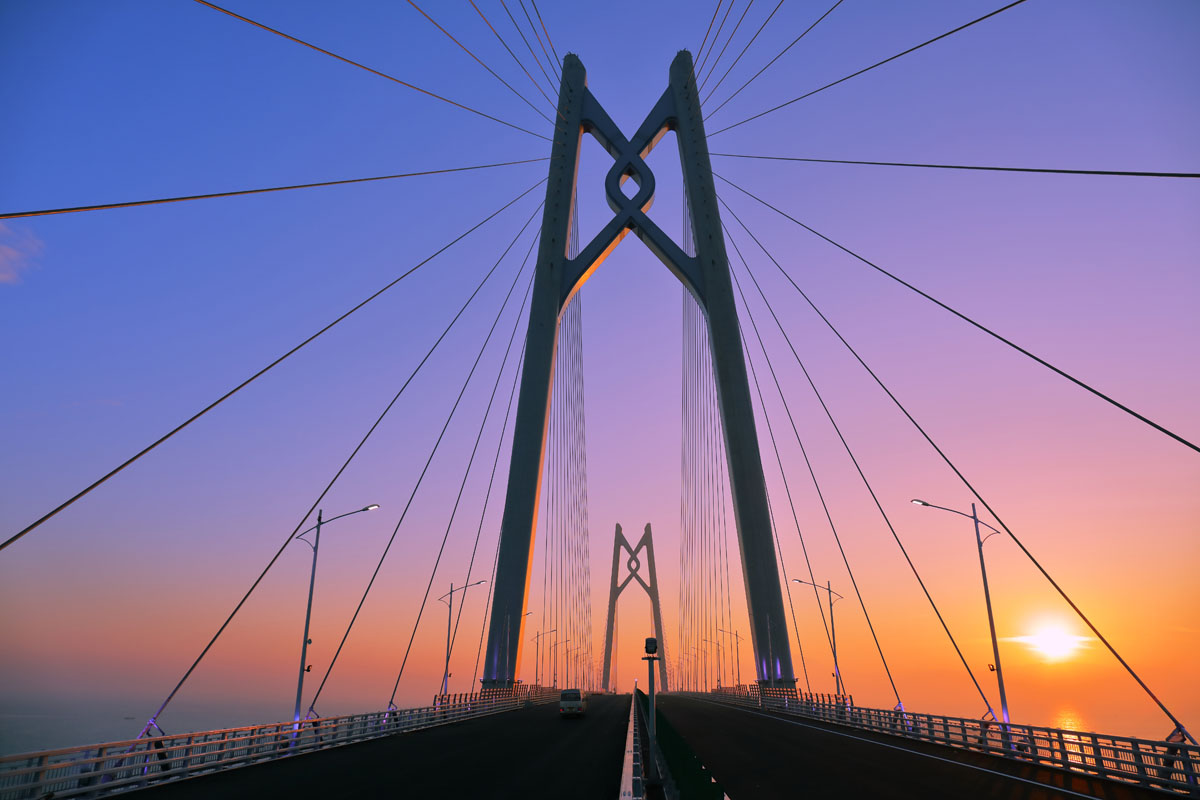It’s been an unpredictable and unstable year for the business events industry and destination management companies (DMCs). In the face of a series of unexpected news headlines, planners and managers have had to utilise a whole new set of skills. The year began with the Queensland floods, before a catalogue of natural, political and economic setbacks: the Japanese earthquake, the Arab Spring conflicts in the Middle East, rising government debts (and fluctuating post-recession market economies in Europe) and, more recently, Hurricane Irene in the US. As a result, many corporate events were postponed for a later date or cancelled altogether.
Symbolically, the situation has been the complete antithesis to the Chinese element Earth, which denotes stability and a state of being grounded.
“It is unfortunate that circumstances occur and require last-minute cancellation of an event,” says Carly Lewis, business director of Hong Kong-based firm cievents. “However, a DMC that can look in the face of those circumstances, have the capability to relocate that event within just a few days to another location, and still deliver it flawlessly is the one that will survive.”

Back to nature
So if a DMC is trying to manage these unforeseen problems, what should an event programme entail? Lewis suggests that the element of earth can be pivotal, as the overall programme should be straightforward and methodical.
“Reinforcing the message among the employees is the first step for building a consistent brand image and guidelines for operations,” she says. “The element of earth also represents the origin of everything in the world as we know it, so reinforcing a company’s philosophy should be another key element of the event. In Asia, entertainment could include things like a Yellow Dragon dance or an interpretive dance focused on the earth as the origin of all things, an element that seeks to ground and stabilise us.”
While it is common to centre an event on challenging sales staff or trainee managers, both through mental and physical exercises, there is a growing trend to anchor events around something entirely different. Developing passion and awareness among individuals and a strong team ethic can be achieved equally successfully with an emphasis on sustainability and putting employees back in touch with the natural world. Considering the elemental nature of earth, it’s highly appropriate.
“The trend for employees to volunteer or work on rehabilitation projects is definitely on the increase – especially as companies are paying more and more attention to the impact of their activities on their operations,” says Lewis. “In many cases, however, these community-based activities are held separately from business events. Many banks in Asia, for example, will either encourage their employees to work on an on-going basis in their local community or plan short trips where a whole team or department can go to another country to volunteer in that area with building a school or tutoring children.”

Earthly pursuits
“There is universal acknowledgement among tourism operators of the importance of sustainability and ecologically sound initiatives,” adds Gold Coast Tourism chief executive Martin Winter. “The Gold Coast is one such region in touch with the shift to greater sustainability and energy efficiency. Many operators here continually upgrade their product to gain the most appropriate and comprehensive certification.”
For example, in trying to arrange a business event on the Gold Coast – an increasingly popular destination for Asian and Australian-based planners – the programme needs to boast a strong slant towards best utilising the city’s many natural assets. To this end, the area’s geographic make-up, which includes 70 km of uninterrupted coastline, coupled with 100,000 hectares of heritage-listed national parks, places it as a favourable offsite destination.
“The Gold Coast can easily accommodate earthly variables into any itinerary – such is the city’s geographic diversity, it has ensured our position as a world leader for incentive travel,” says Jacqui Taylor, Gold Coast Convention Bureau (GCCB) director. “Two of the most popular Gold Coast experiences are learn-to-surf classes, where delegates learn to ride the famous Australian waves, and a spectacular calm-water cruise to McLaren’s Landing on South Stradbroke Island, where guests dance the night away under the stars.”
For Asia-Pacific companies, Hawaii too has strong ecological credentials and event managers can choose from six entirely different natural experiences across a variety of island geographies. Often referred to as the “Garden Isle,” Kaua‘i is cloaked in brilliant shades of green, luring groups with its lush mountains, verdant grottos, hidden beaches and shimmering waterfalls. Alternatively, the Big Island offers a climate and terrain that ranges from tropical rainforests and waterfalls to arid, desert-like conditions. Environmentally, it takes visitors on journeys from mountains topped by clouds (and often snow) to sprawling cattle ranches and long, uncluttered beaches. For large-scale groups or conventions, it also has approximately 10,000 hotel rooms spread across 185 properties.
“Hawaii’s multicultural community makes it easy to visit from anywhere around the globe and feel at home,” says Joe Davis, general manager of the Hawaii Convention Center. “We suggest that planners consider developing programmes that include a visit to more than just one of the six Hawaiian islands as a way for attendees to more fully experience all that Hawaii has to offer. Opportunity from the developing Asia markets is immense – the increased flights from South Korea show good promise for us – and we recognise the potential for China.”
Reality bites
Perhaps the most important component for meeting and event planners in the light of the past year’s instability, however, is bottom-line cost. In the next year, companies will continue to look for value for money in their choice of destinations and events, and keeping financially grounded will ring true across every boardroom. As companies need to justify sending their personnel abroad more than ever to ensure a return on their investment, the planning and carrying out of events is harder than it once was.
“For companies in Asia, Thailand will most likely continue to be a popular destination for events, as the Thailand government has been working hard on the improvement of the country’s events business,” says cievents’ Lewis. “Malaysia is also working to make a name for itself on the MICE circuit. In terms of overall packages, the trend is for companies to look for all-inclusive types of events. They want a package that will provide a forum for team bonding and the achievement of business objectives – a one- to two-day meeting plus one or two days of local tours and team building will be a popular programme.”
“The Gold Coast is very accessible from Asia and cost effective, which is one of the most important decision-making factors for every event,” concludes GCCB director Taylor. “Despite current trends, the fundamental purpose of an incentive event is still to reward staff for their exceptional performance, to motivate them to continue to perform, to maintain staff in a competitive employment environment, and to achieve company profits.”
“Encourage employees to work on an on-going basis in their local community, or plan short trips where a whole team or department can go to another country to volunteer in that area with building a school or tutoring children”
“The fundamental purpose of an incentive event is still to reward staff for their exceptional performance, to motivate them to continue to perform and to maintain staff in a competitive employment environment”
Three earthly credentials that are sure to impress:
1. One of the best ways is by choosing certified eco-hotels and venues. There are certain hotels that pride themselves on being sustainable, and that can be a big bonus for certain events both in terms of employee engagement and corporate social responsibility.
2. Many events are unsustainable because of printed materials that are handed out to delegates. Nowadays, there are great technologies available that can allow events to be completely paperless. For example, each delegate can receive an iPad when they arrive at an event. This iPad can have their welcome information, presentations for all sessions, live voting capabilities for sessions, and even the ability to compile feedback data at the end of the event.
3. Online registration can make a huge difference. By computerising and centralising the registration process a lot of resources and manpower can be saved.


